
Co-Producer
Ethically conflicted police lieutenant Hermes Papauran continues his struggle to find resolution to a 15-year-old case around a volcanic ash laden landscape and an impenetrable lake. A prequel to When the Waves Are Gone.
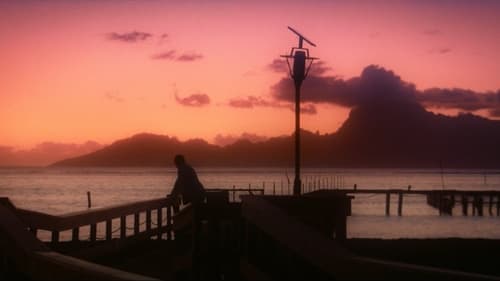
Producer
Island of Tahiti. French government official De Roller is a calculating man with impeccable manners, capable of dealing with both high society and the locals he frequents in shady joints.
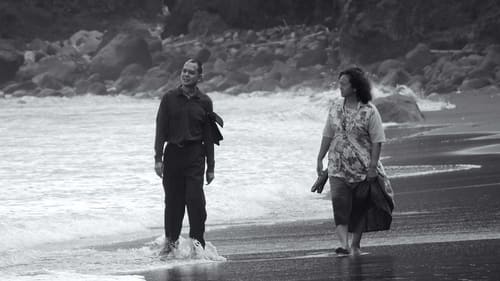
Producer
Lieutenant Hermes Papauran, one of the best investigators of the Philippines, is at a deep moral crossroad. As a member of the police forces, he is a first-hand witness of the murderous anti-drug campaign that his institution is implementing with dedication. The atrocities are corroding Hermes physically and spiritually, causing him a severe skin disease resulting from anxiety and guilt. As he tries to heal, a dark past haunts him and has eventually come back for a reckoning.
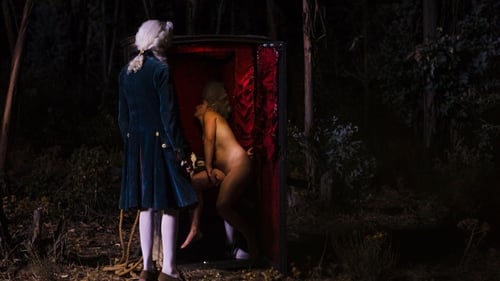
Producer
1774, shortly before the French Revolution, somewhere between Potsdam and Berlin. Madame de Dumeval, the Duke de Tesis and the Duke de Wand, libertines expelled from the puritanical court of Louis XVI, seek the support of the legendary Duc de Walchen, German seducer and freethinker, lonely in a country where hypocrisy and false virtue reign. Their mission is to export libertinage, a philosophy of enlightenment founded on the rejection of moral boundaries and authorities, but moreover to find a safe place to pursue their errant games, where the quest for pleasure no longer obeys laws other than those dictated by unfulfilled desires.

Producer
Catalan director Albert Serra’s follow-up to his magisterial The Death of Louis XIV is another forensic documentation of the Sun King’s final breaths. Here, however, Versailles is replaced with the glow of the gallery.

Producer
As thousands in Lisbon march against austerity measures, jobless and lonely Susana joins the protest but can't escape from her solitude. Meanwhile, listless Jorge lives with his mom and has insomnia. Susana and Jorge turn on their computers at night and let their secret lives unfold.
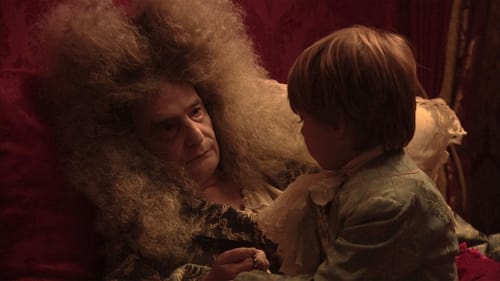
Producer
August 1715. After going for a walk, Louis XIV feels a pain in his leg. The next days, the king keeps fulfilling his duties and obligations, but his sleep is troubled and he has a serious fever. He barely eats and weakens increasingly. This is the start of the slow agony of the greatest king of France, surrounded by his relatives and doctors.

Producer
The film tells the story of a sister and a brother, Inês and Rafael. Since the divorce of their parents, their family never saw Rafael again. Inês runs away from home looking for him when she is told he is back at the Guincho Beach and surfing again. Rafael is an ex-surf champion who everyday gets himself inside the most dangerous waves to test the limits of his life. When the two brothers meet, Guincho makes them come together in a promise of paradise on earth, as it was the last place where their family lived together and in happiness. But Inês is surprised one day when she finds her brother looking fixedly to the Serra de Sintra mountain range, where the Convent of the Capuchos, which once was his refuge, is. She fears having brought him back the memories of the separation of their parents. Rafael is in a crisis of faith. When one day he disappears, Inês knows he went back to the convent, and she starts doing what she can to bring him back to her.

Screenplay
The film tells the story of a sister and a brother, Inês and Rafael. Since the divorce of their parents, their family never saw Rafael again. Inês runs away from home looking for him when she is told he is back at the Guincho Beach and surfing again. Rafael is an ex-surf champion who everyday gets himself inside the most dangerous waves to test the limits of his life. When the two brothers meet, Guincho makes them come together in a promise of paradise on earth, as it was the last place where their family lived together and in happiness. But Inês is surprised one day when she finds her brother looking fixedly to the Serra de Sintra mountain range, where the Convent of the Capuchos, which once was his refuge, is. She fears having brought him back the memories of the separation of their parents. Rafael is in a crisis of faith. When one day he disappears, Inês knows he went back to the convent, and she starts doing what she can to bring him back to her.

Director
The film tells the story of a sister and a brother, Inês and Rafael. Since the divorce of their parents, their family never saw Rafael again. Inês runs away from home looking for him when she is told he is back at the Guincho Beach and surfing again. Rafael is an ex-surf champion who everyday gets himself inside the most dangerous waves to test the limits of his life. When the two brothers meet, Guincho makes them come together in a promise of paradise on earth, as it was the last place where their family lived together and in happiness. But Inês is surprised one day when she finds her brother looking fixedly to the Serra de Sintra mountain range, where the Convent of the Capuchos, which once was his refuge, is. She fears having brought him back the memories of the separation of their parents. Rafael is in a crisis of faith. When one day he disappears, Inês knows he went back to the convent, and she starts doing what she can to bring him back to her.

Director of Photography
I went to Bosnia after war ended, in 1996, when the Danton Peace Accord was being implemented. Bosnia had been divided in two entities, which separated the two main opposing forces of the conflict; the Serb Bosnians and the Muslim Bosnians. Two years later, in 1998, I returned to Bosnia... This movie is a diary of the two voyages, in which I deal with the memories of the war, the death and destruction and with the victim’s struggle who don’t know how to return home.

Writer
I went to Bosnia after war ended, in 1996, when the Danton Peace Accord was being implemented. Bosnia had been divided in two entities, which separated the two main opposing forces of the conflict; the Serb Bosnians and the Muslim Bosnians. Two years later, in 1998, I returned to Bosnia... This movie is a diary of the two voyages, in which I deal with the memories of the war, the death and destruction and with the victim’s struggle who don’t know how to return home.

Director
I went to Bosnia after war ended, in 1996, when the Danton Peace Accord was being implemented. Bosnia had been divided in two entities, which separated the two main opposing forces of the conflict; the Serb Bosnians and the Muslim Bosnians. Two years later, in 1998, I returned to Bosnia... This movie is a diary of the two voyages, in which I deal with the memories of the war, the death and destruction and with the victim’s struggle who don’t know how to return home.

Screenplay
A young woman and her son runaway from their hometown to escape civil war. Nothing is left from the world they knew and the only thing they have is each other.

Director
A young woman and her son runaway from their hometown to escape civil war. Nothing is left from the world they knew and the only thing they have is each other.
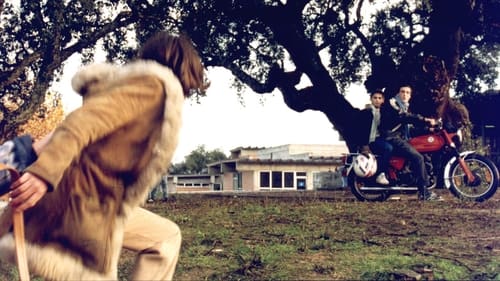
Writer
Gloria is set against the backdrop of a rural landscape slowly disappearing in modern Portugal. The small border town of Vila de Santiago, once a booming trade center for illegal trafficking, is about to become a ghost town, as a new motorway is to bypass the city and the railway station is being closed. Its stationmaster, Vincente, is preparing to retire. Many young people have moved out, leaving the children to be brought up by the elderly, including thirteen-year-old Glória and her friend Ivan. Glória's life suddenly changes with the arrival of Vincente's younger brother, Mauro, who has just come out of prison and has some old issues to settle. Mauro begins to charge around the station on his motorbike, while Glória's friendship with Ivan is put to test on account of her attraction to older Mauro.

Producer
João Pedro Rodrigues films the holiday journey of an emigrant family from Paris to their homeland in Trás-os-Montes. Footage from the couple's daily life in Paris - he is a cobbler and she is a janitor - combined with records from their car journey through French and Spanish highways to Portugal and with moments of their holidays.

Producer
Through a conversation with João Bénard da Costa and his ideas about the Portuguese cinema, an interaction between the construction of the documentary and the sights and sounds clips from some movies is established. Despite the difficulties, the films continue to exist and to resist. Is it worth it? What would happen if they disappeared? Each viewer must find their answer. This film aims to be an approach to Portuguese cinema in its hundred years of existence, opening, hopefully, ways for their dissemination and making light for its knowledge.

Screenplay
The film is set in Lisbon, and tells the story of a day in the life of Rita and Paulo, a Portuguese young couple of the 90's. The fast changing city around them makes them wish to break with all traditions and live the day the get married (only civil marriage) like it is an ordinary day.

Director
The film is set in Lisbon, and tells the story of a day in the life of Rita and Paulo, a Portuguese young couple of the 90's. The fast changing city around them makes them wish to break with all traditions and live the day the get married (only civil marriage) like it is an ordinary day.

Thanks
Documentary about Japanese film director Shohei Imamura.

Producer
The city during the beginning of cinema. The typical city at the time of the dictatorship. The New Lisbon of the New Cinema. Lisbon after the Revolution. The white city of foreigners. A geographical and moviegoer screenplay of Lisbon through the images of films and testimonies of several filmmakers who filmed in Lisbon.

Production Manager
The city during the beginning of cinema. The typical city at the time of the dictatorship. The New Lisbon of the New Cinema. Lisbon after the Revolution. The white city of foreigners. A geographical and moviegoer screenplay of Lisbon through the images of films and testimonies of several filmmakers who filmed in Lisbon.

Producer
A documentary on one of the most important Portuguese Plastic Artists, with greatest International projection. Shown here are his techniques, themes, and obcessions developed for over two decades, as well as its ramifications into different supports such as Video, Photography, literature, taking the rare oportunity granted by a full retrospective of his work at the Gulbenkian Foundation in Lisbon, including the works dispersed through International collections.

Writer
A documentary on one of the most important Portuguese Plastic Artists, with greatest International projection. Shown here are his techniques, themes, and obcessions developed for over two decades, as well as its ramifications into different supports such as Video, Photography, literature, taking the rare oportunity granted by a full retrospective of his work at the Gulbenkian Foundation in Lisbon, including the works dispersed through International collections.

Director
A documentary on one of the most important Portuguese Plastic Artists, with greatest International projection. Shown here are his techniques, themes, and obcessions developed for over two decades, as well as its ramifications into different supports such as Video, Photography, literature, taking the rare oportunity granted by a full retrospective of his work at the Gulbenkian Foundation in Lisbon, including the works dispersed through International collections.
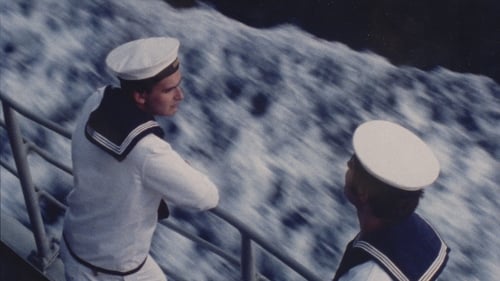
Assistant Editor
Freely based on Gide ('Paludes') and Hawthorne ('Wakefield'), this is a film about a writer who never wrote anything and who blows at nightfall the breath of frost. The poem by Carlos Queiroz to which the above sentences belong is not cited in 'O som da Terra a Tremer', but the atmosphere is that, between written letters never received. Fiction within fiction, stories within stories, like those Chinese boxes in which there is always one inside another. Or the two margins of the same river, always being lateral.

Assistant Director
João Pedro Rodrigues' gradutation short film.

























